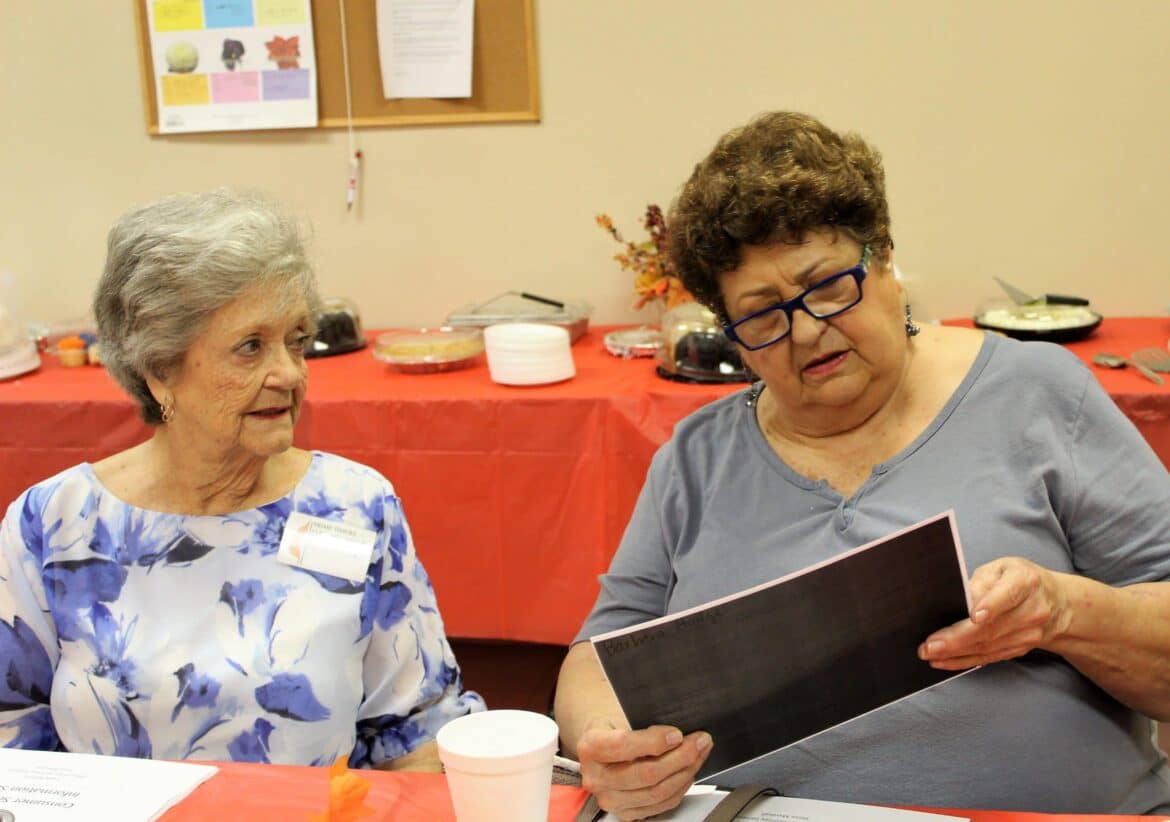By Gerri Miller
Staff Writer
Emily Nichols of the Alabama Attorney General’s office has seen it all when it comes to scams targeting the elderly, but one case in the River Region really made her hurt for the victim.
Nichols said the victim was an 82-year-old woman who had become “pen pals” with a man in Switzerland. After months of e-mails, he said he wanted to come visit her in the United States, but first needed airline tickets. Somehow, the scammer talked the elderly victim into wiring money to him every day until she had sent him $400,000. She said there is little recourse for such cases because it is so hard to track down the scammers and the victim probably won’t get her money back.
Nichols was the guest speaker at the September Prime Timers luncheon held at Millbrook First United Methodist Church. Nichols said some of the more common types of scams include foreign lotteries, work-at-home or mystery shopper jobs, sweetheart scams, bogus government grants, foreign business offers, overpayments, IRS imposters and grandparent scams.
“These scammers play on every emotion we have,” Nichols said. She said while it was extremely disparaging and heartbreaking, all her office could do in the Swiss case was to report it to the Department of Homeland Security. “The Sweetheart Scam tugs at a whole different place in our hearts,” she said.
The scammers are usually foreign, use fake ID’s, and take advantage of the fact that it is difficult to pursue these types of cases.
“Senior citizens are key targets, but not the only ones. Seniors are targeted more because the scammer stands to gain the most financial benefits from them,” Nichols said.
Overpayment scams occur when a victim lists an item for sale or rent. The scammer claims to want to buy the item or rent the property. The victim will then receive a check or money order in excess of the sale/rental price because the scammer supposedly couldn’t get the check cashed. He tells the victim if he or she will cash the check they can keep some of the overage for their trouble.
Most people are not aware that it is not the bank’s responsibility to cover a check that it has cashed. The victim, not the bank, is presenting the check as good for payment and he or she is ultimately responsible for the repayment of funds.
In the case of telemarketing, a telemarketer’s first goal is to get you to answer the phone. One of the techniques they used is called spoofing or using a device to change the number on your Caller ID to look like a local number or a number you would recognize.
Your best bet is not to answer the phone unless you are sure of the number. “Don’t answer the phone and then push two to get off their list- you have just let them know that there is a live person on that line,” she said.
“Your goal should be to make the caller believe that your number is no good, and no one is there to be scammed,” Nichols said.
Another scam that hits the elderly hard is home repair fraud. Nichols said that if you are approached unsolicited at your home by a contractor, remember that most professionals do no solicit door-to-door nor require large payments up front.
“There is no reason for you to have to pay a contractor a dime upfront,” she said.
She said you are probably dealing with a scammer if you hear any of the following: “I just finished another job in this neighborhood, and I am trying to get rid of this extra material.”
“The price I am quoting is very low because we plan to use your home as a demonstration model.”
“You will have to pay me in cash since I am giving you such a great deal.
“This offer is only good today.”
“I will need some additional money to order more supplies before I can finish the job.”
“You need to have this work done immediately. You don’t have time to think about it.”
“The price of these materials will go up tomorrow.”
If you are a victim of a scam, it is important to report it. “Don’t be ashamed or embarrassed that this happened to you,” she said. “It can happen to anyone and every report helps.”
Contact your local law enforcement agency first, they should be able to provide you with valuable resources. Contact federal agencies such as the FBI and Postal Inspectors. Also contact the Alabama Attorney General’s Office and the Federal Trade Commission.
Numbers you need to know include:
Annual Credit Report 1-877-322-8228 www.annualcreditreport.com
U.S. Postal Inspection Service 1-877-876-2455 www.postalinspectors.uspis.gov
Social Security Administration 1-800-269-0271 www.socialsecurity.gov
Identity Theft www.identitytheft.gov
Do Not Call Registry 1-888-382-1222 www.donotcall.gov
Mail Opt Out 1-888-567-8688 www.optoutprescreen.com
Better Business Bureau 1-800-824-5274 www.bbb.org
Internal Revenue Service 1-800-908-4490 www.irs.gov
Federal Trade Commission 1-877-382-4357 www.ftc.gov






